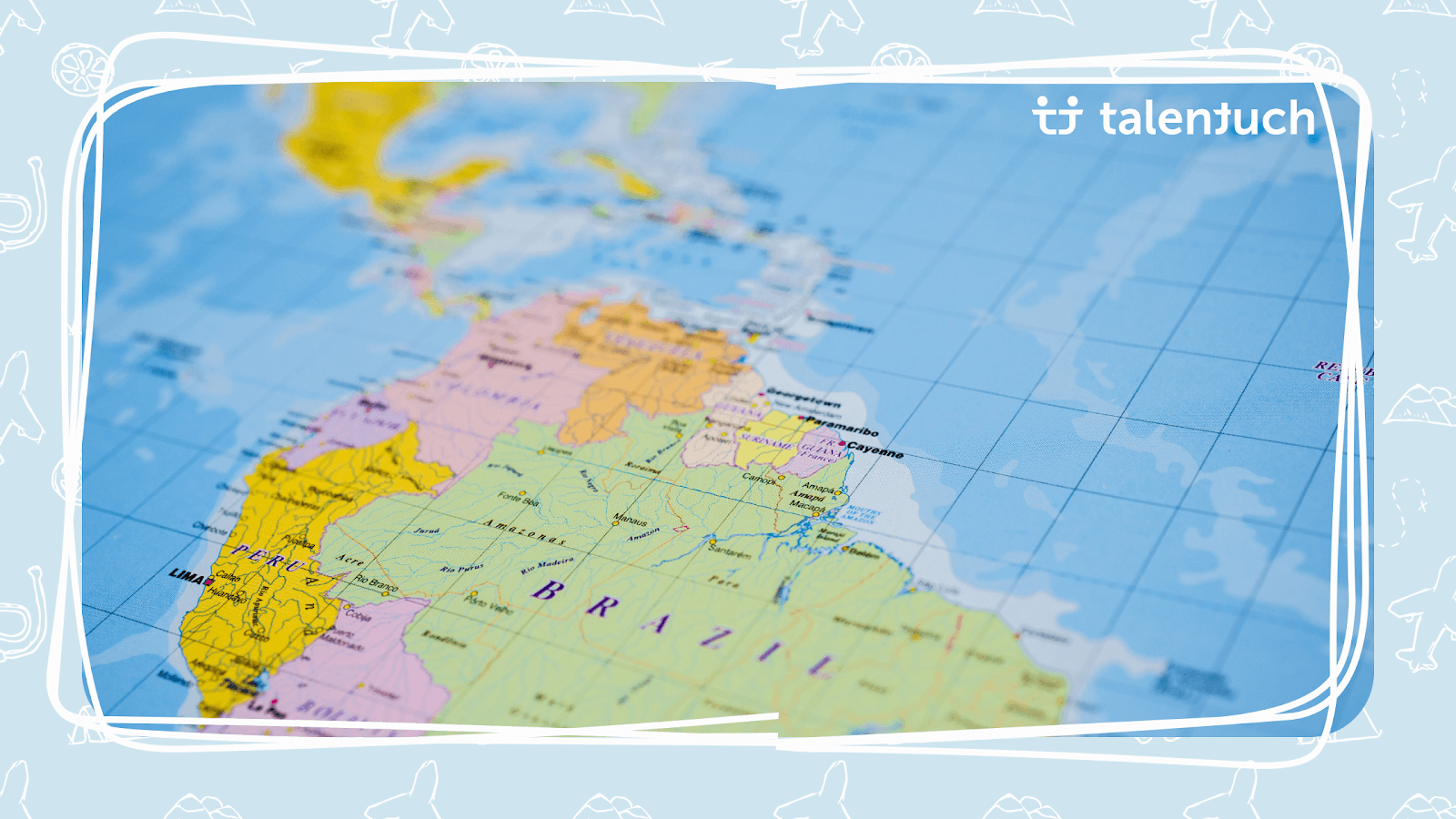As technology makes it easier to communicate and collaborate remotely, companies are increasingly looking beyond borders to access top talent and expand into new markets. The World Economic Forum estimates that remote global jobs will grow to 92 million roles by 2030.
Employing talent across borders used to be a risky, tedious, and expensive process involving opening legal entities and hiring local lawyers, accountants, benefits providers, and more. Now, however, the barrier to entry is much lower thanks to employers of record (EORs) and professional employer organizations (PEOs) that already have a compliant employment infrastructure in place for client companies to tap into.
What exactly are EORs and PEOs, and how can they help you hire cross-border talent while mitigating risk and ensuring compliance? We sat down with Miranda Zolot, General Counsel at Oyster, and Boyd Rogers, Divisional Vice President and Lead Counsel, Employment Law, at TriNet, for a deep dive into EORs, PEOs, and hiring talent in the U.S. and around the world. Their conversation touched on the differences between EORs and PEOs, the complexities of hiring internationally, and how companies can partner with an EOR or PEO to successfully navigate compliance challenges and achieve their global expansion goals.
Understanding EORs and PEOs
EORs and PEOs both help companies employ and manage talent, but they operate under fundamentally different models. PEOs primarily serve the U.S. market, while EORs provide global employment solutions. Let’s examine each model in detail.
An employer of record is a third-party organization that employs talent on behalf of a client company and assumes liability for the employment relationship. As the legal employer, the EOR is responsible for every aspect of the employee lifecycle from compliant contracts to payroll, taxes, benefits, and offboarding. The team member provides services to the client company, but their employer is the EOR.
With a professional employer organization, the employment relationship is very different because the client company and the PEO become co-employers of the team member. In this model, the duties, responsibilities, obligations, and risks of employment are shared by the client company and the PEO. The client company manages the employee’s day-to-day work while the PEO handles HR tasks like processing payroll, withholding and remitting taxes, ensuring compliance with labor laws, and more.
Despite the differences in the employment model and legal relationships, EORs and PEOs are similar in that they both provide HR support by taking care of payroll, taxes, benefits, compliance, and more. By taking on the HR admin burden, an EOR or PEO partner makes it easier for the client company to focus on the core of their business, and not the administration of their workforce.
Benefits of partnering with an EOR or PEO
Using an EOR or PEO partner enables companies to expand across borders without their HR team being burdened by legal, logistical, and administrative hassles. Below are some of the most important benefits of working with an EOR or PEO.
- Speed and readiness to hire: Whether you need to hire U.S.-based talent to service key customers, establish a software engineering team in India, or build a customer service pod in the Philippines, a PEO or EOR partner can help you expand quickly and compliantly, allowing your business to grow at the pace you intend.
- Compliance management and risk mitigation: When hiring in another country or jurisdiction, an EOR or PEO can keep you compliant with local labor laws and tax regulations. Whether it’s payroll taxes, statutory entitlements, or workers compensation insurance, a PEO or EOR partner will have the HR infrastructure in place to check all the legal and regulatory boxes.
- Workforce visibility and management: The best EORs and PEOs provide an intuitive, scalable software platform that makes it easier for HR teams to view and manage their workforce, from PTO tracking to employee benefits, bonuses, expenses, equity, and more.
- HR guidance and strategy: EORs and PEOs have a wealth of HR knowledge and experience, so they’re well equipped to offer you guidance and strategic advice, whether it’s fine-tuning your talent strategy or becoming an employer of choice.
🚀 Learn how Lokalise scaled their global team across 45 countries with Oyster as their EOR partner.
Challenges of hiring in the US—and how a PEO can help
International companies hiring in the United States may find it challenging due to the unique cultural and legal nuances of U.S. employment practices.
First, at-will employment is the norm in the U.S., which may be surprising or unfamiliar to employers in other countries. Employment at will means that either party, the employee or the employer, can end an employment relationship at any time without reason, cause, or notice (as long as the employer is not terminating for an unlawful reason). This model is unique to the U.S. and builds a high degree of flexibility into the employment relationship.
Another challenge of hiring in the U.S. is the layered structure of U.S. employment law, which operates at three distinct levels: federal, state, and local. At the federal level, legislation like the Fair Labor Standards Act, Title VII of the Civil Rights Act, and the Americans with Disabilities Act establish baseline standards that all employers must follow. Moving to the state level adds another layer of complexity, as each of the 50 states has its own unique set of employment laws and compliance requirements, often exceeding federal standards. The final layer comes from local jurisdictions—cities and counties can enact their own employment ordinances, such as higher minimum wages or additional worker protections. For both U.S. and international employers, managing compliance across these three interconnected levels can feel like navigating a complex maze.
The good news is that a PEO, like TriNet, is already equipped with the knowledge and infrastructure to comply with varying laws across all 50 U.S. states. PEO services can help companies navigate multi-state and multi-level compliance requirements, from where to remit payroll taxes in Minnesota to how to interpret a court opinion on a particular statute in Florida. By leveraging the knowledge and expertise of a PEO, global companies can onboard talent in the U.S. without getting mired in the complexities or making costly compliance mistakes.
🎯 Learn how Edge Electronics ensures compliance across 10 U.S. states by partnering with TriNet.
Challenges of hiring globally—and how a EOR can help
Similar to hiring in the U.S., hiring globally also presents an array of compliance challenges since each country has unique laws, compliance requirements, and cultural norms and expectations around employment practices.
For instance, some countries mandate a 13th-month salary, while others require a mandatory Christmas bonus or vacation premium. When separating employees, you’ll need to be aware of acceptable reasons for terminating employment as well as notice period and severance requirements. Employers may be required to withhold and remit social contributions to the appropriate government agencies. There may also be payroll reporting requirements, data privacy regulations, and more.
Adding another layer of complexity, employment legislation is constantly changing and evolving, so employers need to stay current with changing laws to ensure ongoing compliance. For example, restrictive covenants have fallen out of favor in Europe for some time, and are currently under scrutiny in the U.S., with a recent non-compete ban currently being appealed. Similarly, the rules and norms around employee mobility are also evolving, with digital nomad visas on the one hand versus tax liability, right to work, and labor laws on the other.
The best EOR services make it much easier to ensure compliance when hiring globally because the EOR already has the HR knowledge and infrastructure in place to support companies who are looking to hire in a particular country or jurisdiction. This helps mitigate the risk of fines, penalties, and reputational damage. Most importantly, it allows you to work with top talent and grow your business without getting bogged down in the technicalities of contracts, payroll, benefits, or compliance.
🎉 Check out how Chili Piper hires compliantly in 43 countries with Oyster as their EOR partner.
Hire compliantly with Oyster and TriNet
Whether you’re looking to expand your workforce in the U.S. or globally, remember that you don’t have to go it alone. You can partner with a PEO like TriNet to hire anywhere in the U.S. or an EOR like Oyster to scale your team compliantly in 180+ countries around the world. Partnering with a PEO or EOR will enable you to grow your team and achieve your business growth goals faster and more efficiently.
For more expert insights, check out the full recording of Hiring in the US and Beyond: PEOs, EORs, and Global Talent with Miranda Zolot, General Counsel at Oyster, and Boyd Rogers, Divisional Vice President and Lead Counsel, Employment Law, at TriNet. If you’re ready to scale your team across borders, learn how TriNet’s partnership with Oyster can help you onboard top global talent.
.webp)
About Oyster
Oyster is a global employment platform designed to enable visionary HR leaders to find, engage, pay, manage, develop, and take care of a thriving distributed workforce. Oyster lets growing companies give valued international team members the experience they deserve, without the usual headaches and expense.
Oyster enables hiring anywhere in the world—with reliable, compliant payroll, and great local benefits and perks.





.avif)

.webp)




